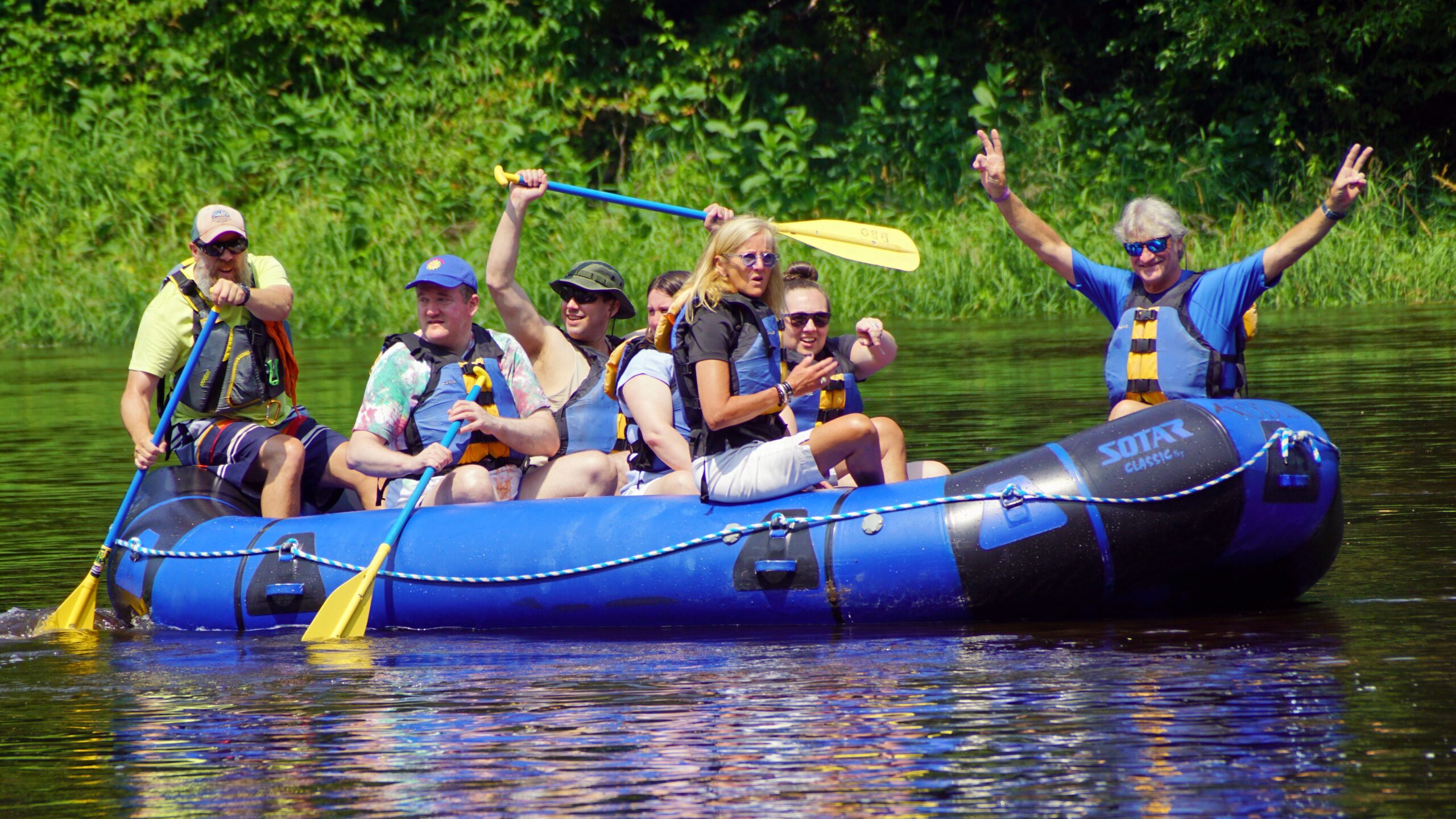After a talk I gave at the United Nations for World Down Syndrome Day on March 21, two young women who had come to New York from Copenhagen approached me. They very respectfully disagreed with some of the things I said about prenatal diagnosis and abortion. They said that rather than opposing abortion, our focus should be on supporting women and families who have children with disabilities so that they know they will have help.
It isn’t uncommon to hear variations of this statement, with the most damning being that the Church is pro-life until the moment of birth, and then women are left on their own to care for their child. Sadly, sometimes that’s true.
During a seminar that I gave for Word on Fire Institute members in February 2024, one of the questions I was asked was this: What can people do to help support people with disabilities? Over the next few months, I would like to answer that question with examples of how some people are truly making a difference. Perhaps these features will inspire someone to respond to the question, “What can I do?”
The first of these features is Mary Delaney, and she’s doing a lot.
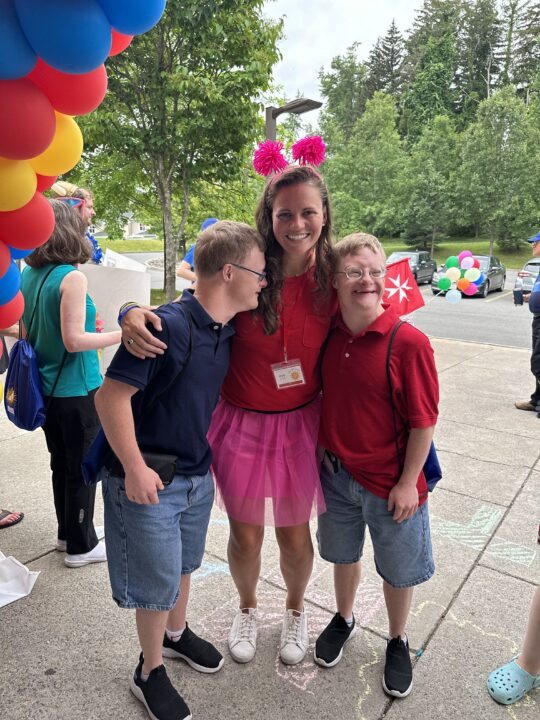
Mary is the Director of Malta Camp USA, a summer camp for young adults with intellectual disabilities sponsored by the Order of Malta. As an auxiliary member of the Order of Malta’s American Association, she has volunteered in Lourdes ten times, including on the Order of Malta’s pilgrimage and as a member of the Hospitalité Notre Dame de Lourdes. Professionally, Mary is an alum of the Massachusetts Institute of Technology (MIT), was previously an associate partner at McKinsey & Co., and is currently the founder and CEO of a tech start-up.
Mark Bradford: Mary, you’re the director of Malta Camp USA, which is a camp for adults living with intellectual and developmental disabilities. Tell us a bit about the camp—how long it’s been in existence, who started it, and how many campers are involved each summer.
Mary Delaney: Malta Camp USA is a relatively new program, started in 2022. Building off a similar program run by the Order of Malta in Europe for over forty years, Malta Camp USA seeks to create a lifelong community for those with and without disabilities. Each summer, guests with disabilities and volunteers spend a week together at camp—going on adventures, doing activities, and having lots of dance parties! But building community takes a lot more than a week, so throughout the year, our group stays connected through FaceTime calls, reunion events (both virtual and in-person), and texts.
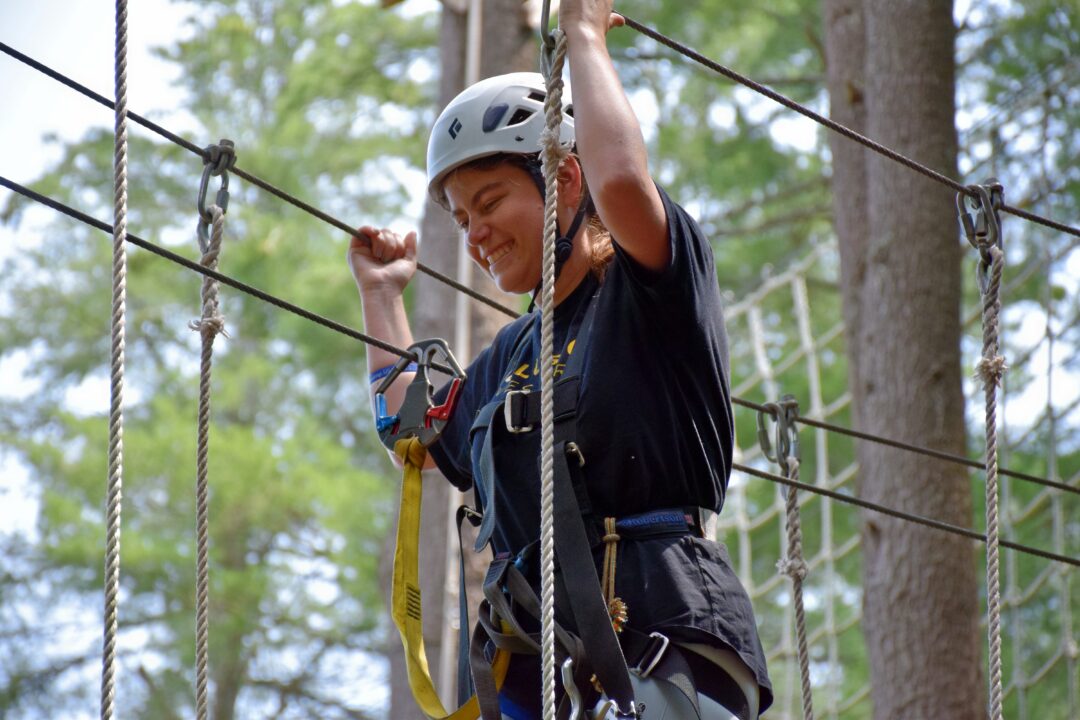
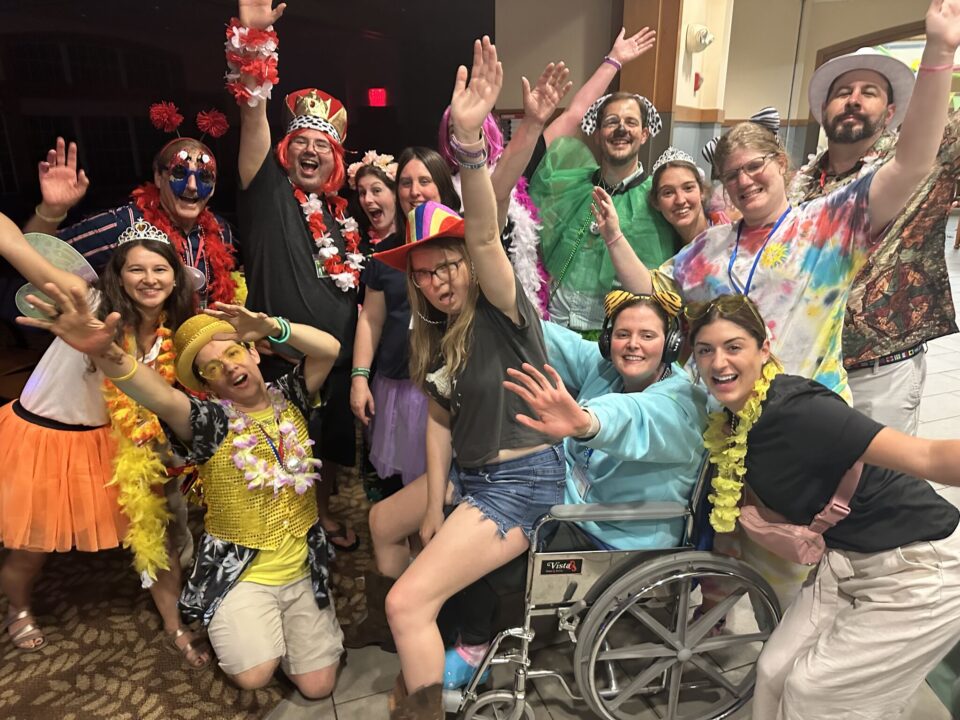
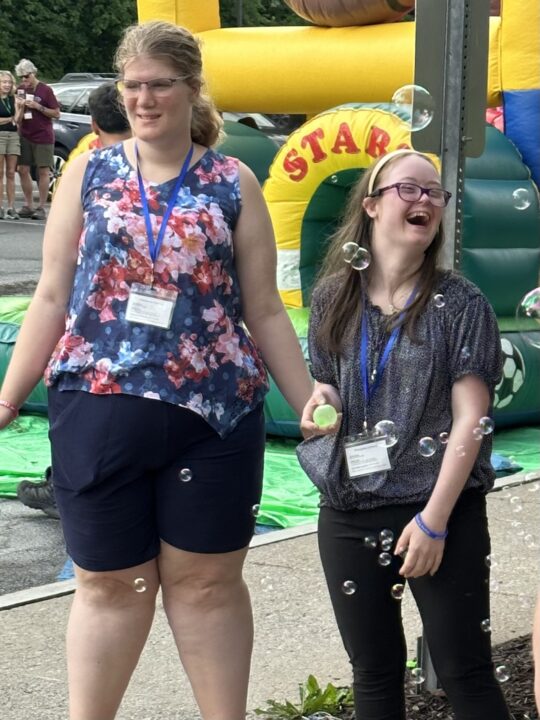
Since our founding, we’ve been growing quickly, roughly tripling in size since our first program two years ago—this summer’s program will include over 100 participants, and we hope to continue growing!
I’m curious about your personal journey from MIT, where you received degrees in chemical engineering and biology, to associate partner at McKinsey, and then to the Malta Camp USA. What are you willing to share about that incredible journey from high-level academic and professional work to running a camp for people with disabilities?
Anyone who knows me well knows that I love math! I was the kid reciting digits of pi and doing math puzzles in my spare time. That passion set me on an academic and professional trajectory where I sought to use my math skills to help others—whether as a cancer researcher in college or helping companies improve efficiency at McKinsey.
I’ve had an incredible career surrounded by amazing people, and yet when I paused to reflect, I found that I was also very lonely at times. I spent a lot of time in settings where your value was your intelligence, and beyond the information or skill set someone brought to the table, you often didn’t have the space or time to connect on a more personal level.
Malta Camp is a reminder of the joy we can find through genuine connection with, and acceptance from, others.
That’s one of the things that I, and I think many of our participants, love most about camp. People are seen and loved as they are. There is no expectation that you need to be the most impressive person in the room to be valuable—just being there creating space for genuine connection with others is what makes every member of our Malta Camp family so important. In a world that can feel increasingly isolating, especially for young people of faith, Malta Camp is a reminder of the joy we can find through genuine connection with, and acceptance from, others.
Having fallen in love with our Malta Camp family and each member of it, I feel so privileged to be able to use my love of numbers and all of the other skills I have picked up throughout my academic and professional career to grow this amazing program and create a loving community for our guests and volunteers.
Can you reflect a little on the experience of the camp both from the feedback you’ve received from the campers, but also from the volunteers? We often hear that spending time with those living with disabilities can be transforming. Have you seen that in your own life or in the volunteers that give their time to assist you?
Malta Camp has absolutely been a transformational experience for me, as well as many of our guests and volunteers.
We hear from many of our guests that camp is a highlight of their year—often the only week they spend away from home. It is a unique opportunity to take risks, try new things, and learn about themselves alongside a safe and caring group of peers. One guest gave a particularly moving reflection that has really stuck with me. She talked about camp as a family that has chosen her, recognizing that most of the people in her life, while they love her deeply, did not ask for a child, sibling, or neighbor with a disability. But at camp, she feels a unique sense of love and acceptance because everyone has chosen to participate and build a community with her.
Each summer, I am struck by how cohesively our group comes together—each person bringing the gifts that they have to make the camp the best it can be for everyone. While there are officially guests and volunteers, each person helps in the way they are able, whether that means holding someone’s hand who is nervous to try something new, making sure everyone has someone to sit with on our bus rides, or sharing an infectious laugh that brings joy to the whole group.
The Order of Malta’s charism is to serve the sick and the poor to give witness to our Catholic faith. At camp, it is so easy to see God in each of our guests. And it serves as a reminder that when we go beyond those things we can immediately see or might assume about a person and allow ourselves to see the whole person—each is a beautiful reflection of God.
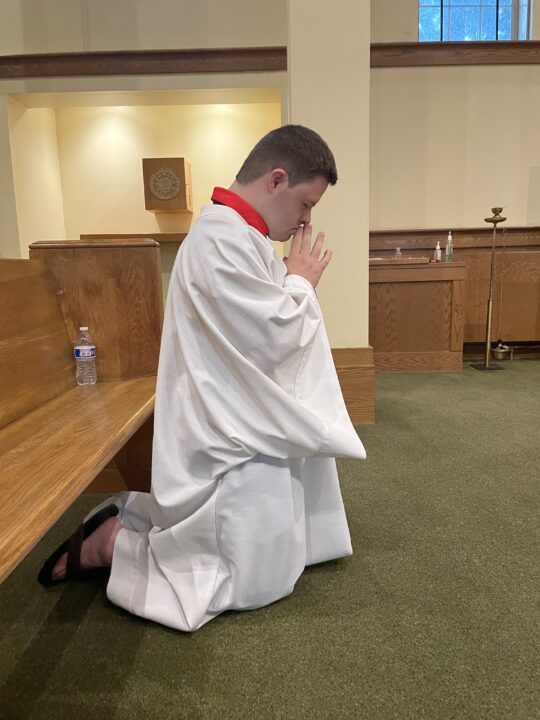
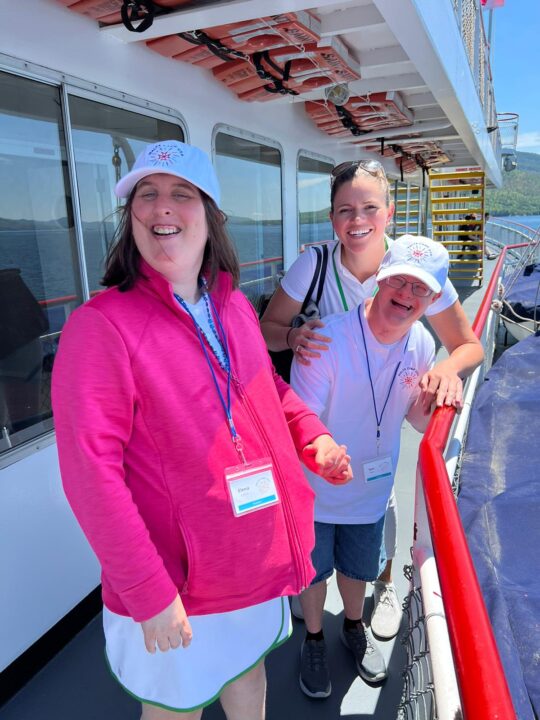
So, what next? Does the Order sponsor these camps in other areas around the country? Any thoughts of expansion? What’s your dream for the future?
The Order of Malta sponsors camps for individuals with disabilities around the world. There is a camp in Europe and one in Asia, in addition to many country-led camps (for example, Italy, Australia, etc.). In the US, we hope to expand Malta Camp USA across the country. My dream is that eventually, every community across the country will have access to a Malta Camp community. Right now, I don’t know if that means one giant Malta Camp or lots of separate chapters, but we hope to learn from our guests and volunteers about the types of experiences and connections that are most meaningful to them and use that to inform our growth strategy.
What do you consider to be your greatest need for support that would make these camps even better for all the participants?
In the near-term, volunteer recruitment is our biggest challenge. While almost everyone who volunteers at camp wants to come back again, continuing to grow our program means continuing to find new volunteers each year. At camp, we have a ratio of roughly two volunteers for each guest with disabilities, and we aim to have most of those volunteers in the same 22-40 age group as our guests in an effort to build a community of peers. As you might imagine, finding people in their twenties and thirties that want to take time off of work to volunteer can be challenging, but we have been blessed with a wonderful group of loyal volunteers so far, and we hope to see that group grow as more people learn about our program.
Additionally, like many nonprofits, funding our growth is also a challenge. We offer camp free of charge to all participants, both guests and volunteers, so we are exploring new approaches to fundraising to ensure the long-term sustainability of Malta Camp USA.
I think we’re past the deadline to sign up for this summer’s camp, but where should people who are interested in volunteering or finding out about the 2025 Malta Camp USA go? Also, how could someone support the camp?
People can learn more about Malta Camp USA on our website: MaltaCampUSA.org. Also, there’s a button there to make a donation. They can also get a glimpse of life at camp through our social media: @MaltaCampUSA on Instagram and Malta Camp USA on LinkedIn. We are still figuring out many of the details for our 2025 camp and will share updates on those platforms as we have them.
People can also write to us or donate by check at Malta Camp USA, 85 E India Row #40H, Boston, MA 02110.
